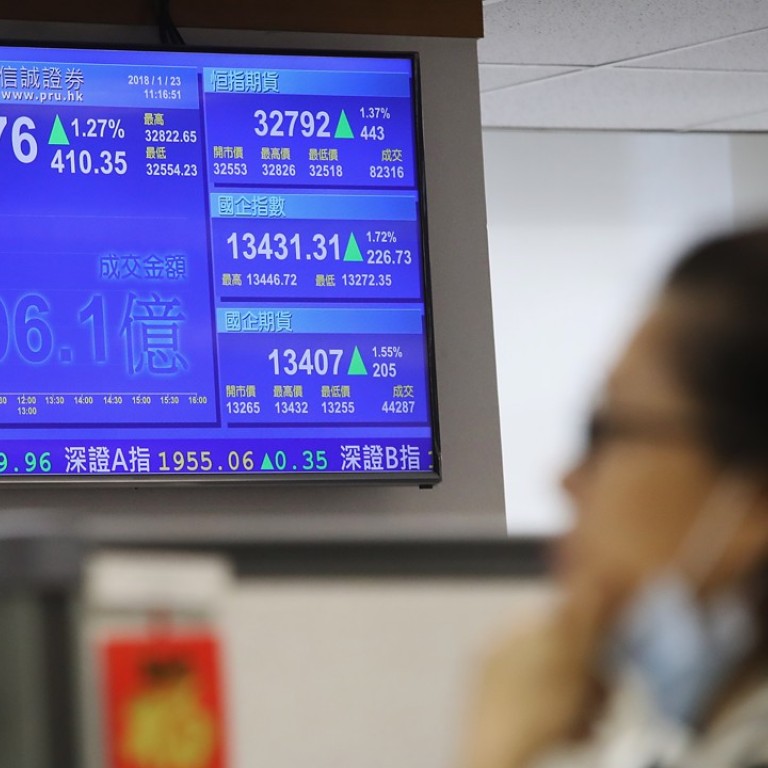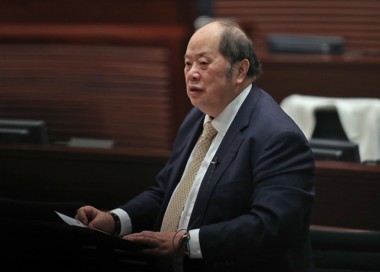
Exclusive | Brokers warn proposed cap on margin lending could reduce trading turnover and even threaten industry’s survival
Hong Kong’s markets regulator wants to limit the total amount brokers can lend to lessen risk, but brokers warn it would reduce trading turnover and threaten the industry’s survival.
Hong Kong’s leading stockbrokers have told the city’s market watchdog they remain strongly opposed to proposed curbs on margin lending, maintaining they would reduce trading turnover and could threaten the industry’s survival. But they say they are willing to compromise.
Christopher Cheung Wah-fung – the veteran stockbroker who is also a lawmaker representing the financial services sector – said, however, the city’s leading firms would accept a small cap on margin lending at the lower end of proposed restrictions now under consideration, if forced.
He met Securities and Futures Commission chairman Carlson Tong Ka-shing and other senior officials last week to hammer out the issues involved.
“If the SFC insists there should be a cap, it should be set at five times or more than the capital of the brokerage firm,” Cheung told South China Morning Post.
The regulator is considering a cap somewhere between two and five times of capital held by the brokers. A period of comment ends next month, and the watchdog will make its announcement later on.
Margin lending refers to using borrowed funds from a broker to trade equities or other financial assets, which forms the collateral for the loan from the broker.
The proposed step comes after the regulator became alarmed by its own survey of brokers last year that found that half were offering total margin loans equal to five times their capital. But in a few cases, the figure shot up to as high as nine times.

China restricts brokers to total lending of three times their capital while Singapore limits them to between three and four times.
Tong insists the proposed controls are needed because of excessive lending, as well as a deterioration in the quality of deals being made with clients.
Some Hong Kong brokers are still willing to offer big margin loans to a small number of clients or for traders dealing in highly volatile securities.
“This, together with the uncertain market conditions, led us to conclude we need to take early action while the market is still stable and the situation manageable,” Tong told SCMP recently.
But brokers argue that what they see as draconian restrictions would dampen trading volume at the very time the city’s markets are stuck in the doldrums.
In addition, the rise in internet trading has drastically cut their fees as well as the end of a 0.25 per cent minimum brokerage commission in 2003. That means firms are relying even more heavily on margin lending, which provides them with interest and other small fees.
Hong Kong’s crowded industry now has about 500 brokers. Margin lending can be highly profitable, with interest rates of between 4 and 9 per cent can be charged.
No brokers have gone bust in Hong Kong in recent years, but there was a wave of collapses during the Asian financial crisis of 1997-1998, including major players such as Peregrine and CA Pacific Securities.
The proposal to restrict margin lending comes at what is now a low point for the city’s market.
The Hang Seng Index has dropped 7 per cent this year, dragged down by issues such as the ongoing trade war between the US and China, China’s slowing growth, and the poor performances of usually high-flying tech stocks such as Tencent.
“The cap would reduce the amount of money available to insupervest in the stock market. This will further hit market sentiment and dry up liquidity,” Cheung also told South China Morning Post.
“If that happens, it would reduce overall market turnover, which has been on a decline in recent months.”
He insisted the city’s brokers are always vigilant at ensuring the quality of collateral put up by retail traders to protect their own financial interests.
“We do not think a proposed cap [on total lending] could help reduce risks. The proposals neglect any consideration of the quality of collateral,” Cheung said.
Cheung argued, too, that any broker which offers high levels of margin loans with high-quality collateral like blue chip stocks is safer than a broker who has a low amount of margin loans that are backed up by low-priced, poor quality stocks.

